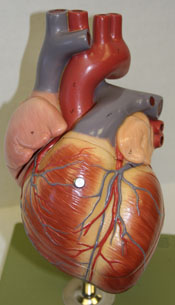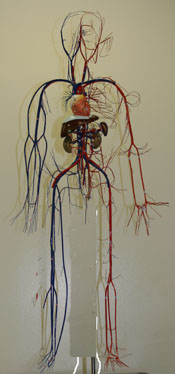Unit 1
Objectives
MAIN OBJECTIVES
The main objectives for Anatomy and Physiology are:
- To compare and contrast the various systems of the body.
- To identify the structures on models and specimens.
- To be able to discuss the functions of the systems and structures.
- To discuss the internal and external impacts on the human body.
- To show the interrelationship between structure and function of the entire organism.
Specific objectives for unit one:
- Blood
- Describe the general characteristics of blood and discuss its major functions.
- Distinguish between the various types of blood cells.
- Discuss the life cycle of a red blood cell.
- List the major components of blood plasma and describe the function of each.
- Review the major steps in blood coagulation.
- Explain the basis of blood typing.
- Describe how blood reactions may occur between fetal and maternal tissue.
- Heart
- Name and describe the location of the major parts of the heart and discuss the function of each part.
- Trace the pathway of blood through the heart and the vessels of coronary circulation.
- Discuss the cardiac cycle and explain how it is controlled.
- Interpret the electrical events of a normal electrocardiogram.
- Define cardiac output and describe factors that influence stoke volume.
- Blood Vessels
- Contrast the structure and function of the major types of blood vessels.
- Describe the mechanisms that aid in returning venous to the heart.
- Explain how blood pressure is produced and controlled.
- Describe the factors affecting blood flow.
- Define shock and describe the four types of shock.
- Compare the pulmonary and systemic circuits of the cardiovascular system.
- Identify and name the major arteries and veins of the pulmonary, hepatic portal, and systemic circuits.
Readings: Seeley's Anatomy and Physiology
Chapters 19, 20, 21
© 2015 George Wawrzyniak. All Rights Reserved.
|

